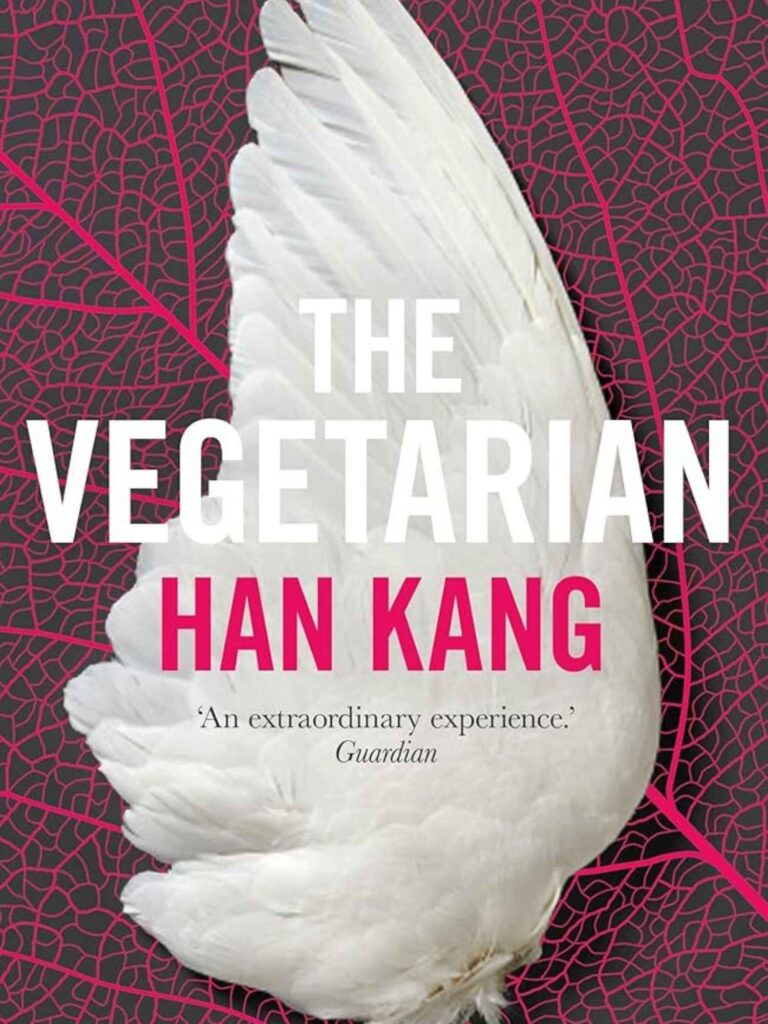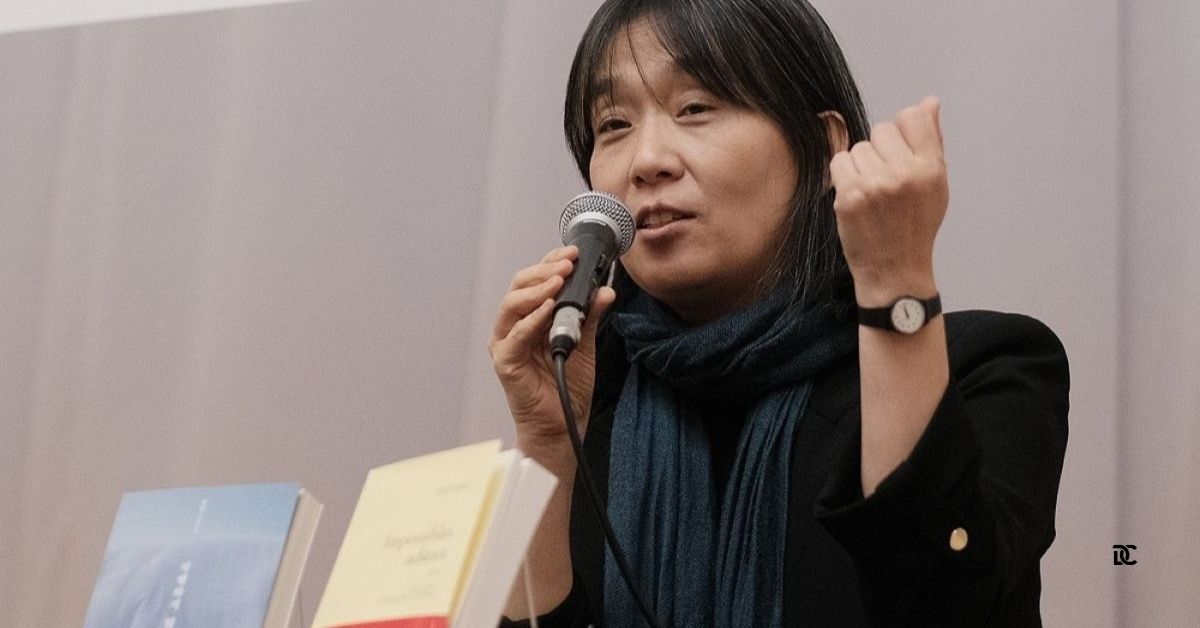Han Kang, the celebrated South Korean author, has been awarded the Nobel Prize in Literature. Known for her surreal and thought-provoking works, Han is the first South Korean writer to receive this prestigious honor. Her deeply poetic prose and fearless approach to exploring human fragility have captivated readers worldwide.
The 53-year-old author has already made a name for herself with her award-winning novel, “The Vegetarian.” In 2016, Han Kang also won the Booker Prize, solidifying her place in the global literary scene. Despite her growing influence, Han has been a reluctant figure in the international spotlight.
The Swedish Academy praised Han Kang for her “intense poetic prose that confronts historical traumas and exposes the fragility of human life.” Mats Malm, the permanent secretary of the Academy, highlighted her unique ability to convey complex emotions with raw power. Han’s writing gives a voice to those who have suffered and explores themes often avoided in mainstream literature.
The Vegetarian is perhaps Han Kang‘s most well-known work, published in South Korea in 2007. It tells the story of a housewife who, after experiencing a disturbing dream, chooses to give up meat and eventually stops eating altogether. Her journey towards turning into a tree is symbolic of the struggle between individual desire and societal expectations.
Also Read
Porochista Khakpour, a literary critic for The New York Times, called Han Kang “a visionary in South Korea.” Her works defy traditional boundaries and challenge readers to think deeply about human existence. This unique voice is part of what earned her this year’s Nobel Prize in Literature.
Han’s writing is often described as surreal, unsettling, and beautiful, reflecting the complexities of life in South Korea. In “The White Book,” another of her acclaimed works, Han meditates on themes of loss and mourning. Her ability to turn deeply personal experiences into universal narratives has made her a favorite among readers and critics alike.
South Korean literature has been steadily gaining international recognition over the last few years, thanks to authors like Han Kang. Her Nobel Prize marks a major milestone not just for her but for the entire literary community of South Korea. It is an acknowledgment that stories from this region have profound significance on a global scale.
Han Kang‘s work often focuses on themes like trauma, loss, and the human struggle for autonomy. Her protagonists are usually complex individuals, dealing with existential crises and confronting harsh societal norms. It is her unflinching exploration of these topics that has made her stand out in the literary world.
Winning the Nobel Prize in Literature is not just a personal achievement for Han Kang; it is also a moment of cultural pride for South Korea. It highlights the richness of Korean literature and its ability to transcend cultural barriers. Han’s work, translated into many languages, has opened up the minds of readers around the world to the unique aspects of Korean culture.
The Nobel Prize committee often seeks out authors whose works deal with the struggles of the human condition. Han Kang fits this mold perfectly, as her novels explore not only the resilience of individuals but also their vulnerability. Her stories are marked by a deep empathy, and they do not shy away from confronting the pain and joy that define our existence.
In interviews, Han Kang has often talked about her writing process as one that involves confronting her own fears and insecurities. She uses her literature to navigate through complex emotions and understand the world around her. This honest exploration of her inner world is what makes her writing so relatable and impactful.
Han Kang‘s achievement is likely to inspire a new generation of South Korean writers. With her Nobel Prize, she has broken new ground for literary voices from her homeland. Young authors who may have doubted the reach of their work now have a role model who has proven that authentic stories can resonate globally.
Han’s unique style, characterized by poetic yet accessible language, is a defining trait of her work. Her books are both literary and relatable, providing profound insights into the human psyche. Her Nobel Prize win underscores the importance of stories that are both locally rooted and globally relevant.

The Vegetarian became a landmark work for many reasons, but its success also brought attention to the challenges faced by women in South Korea. Han Kang used her platform to speak about the issues of gender inequality, societal expectations, and the right to individual freedom. The novel’s protagonist, Yeong-hye, embodies these struggles, making her story powerful and relatable.
Critics have noted that Han Kang’s work challenges the norms of storytelling. Her narratives do not follow traditional structures; they often take the reader on an emotional journey that transcends the plot. Her prose is layered, and she masterfully weaves metaphor with stark realism to create powerful emotional landscapes.
As Han Kang receives the Nobel Prize in Literature, there is hope that this will shine a light on more Korean authors. South Korea has a rich tradition of storytelling, from folklore to contemporary literature. This win puts Korean literature on the map and emphasizes its importance as part of the broader world literary community.
Readers across the globe have embraced Han Kang’s writing because of its honesty and depth. The themes she explores—trauma, transformation, and resistance—are universal, and they touch the lives of those who read her work. Her Nobel Prize is a testament to her ability to connect with readers on a deep emotional level.
Han Kang‘s Nobel Prize win is a reminder that literature has the power to bridge cultures and bring to light the shared struggles of humanity. Her prose challenges us to look at our own lives and the world around us more critically. It is a reminder that through storytelling, we can understand ourselves and each other better.
In a time when cultural exchange is more important than ever, Han Kang‘s recognition is a beacon of hope. It highlights the value of diverse voices in literature and the impact they can have on the world stage. Han Kang‘s words have crossed borders and reached hearts around the globe, showing that the power of a story can transcend language and culture.
The celebration of Han Kang‘s Nobel Prize win is not just about the accolades she has received. It is also about celebrating the resilience of writers who tell the truth, even when it is uncomfortable. Han has used her voice to tell the stories that need to be told, and in doing so, she has become a symbol of courage in the literary world.
The Nobel Prize in Literature has brought Han Kang the recognition she deserves. Her work speaks to the essence of the human experience—its darkness, its beauty, and its endless complexity. As readers celebrate this win, it is a reminder of the transformative power of literature and its ability to connect us all.






